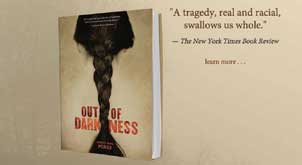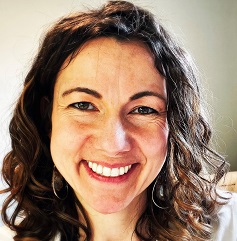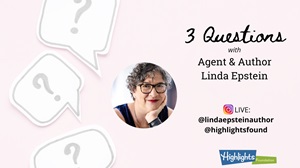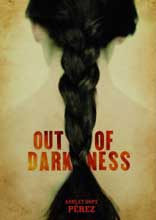 Reading the prologue to Ashley Hope Pérez’s award-winning historical fiction novel, Out of Darkness, is a litmus test to see if you can emotionally handle this haunting work. If you can pull through the prologue without your heart crumbling to nothing, you might be strong enough to continue reading.
Reading the prologue to Ashley Hope Pérez’s award-winning historical fiction novel, Out of Darkness, is a litmus test to see if you can emotionally handle this haunting work. If you can pull through the prologue without your heart crumbling to nothing, you might be strong enough to continue reading.
“Within the great circle,” she writes, “men crawl over the crumpled form of the collapsed school. They cart away rubble and search for survivors. For their children. Mostly, though, they find bodies.” The prologue continues, describing the hours and days just after the explosion. The prologue ends with, “More than grief, more than anger, there is a need. Someone to blame. Someone to make pay.”
Ashley pulls no punches when it comes to the emotional toll she hammers against her characters and, in turn, her readers. Set in New London, Texas in 1937, Ashley writes a story seeped in historical traumas that she balances with a love story between her characters, Wash and Naomi.
Short chapters push the story ahead while we watch the characters’ relationships unfold and intertwine. Told through multiple points of view, the tragedies in Out of Darkness, both Ashley’s researched facts and her developed fiction, set a dialogue for U.S. history that today’s readers must examine thoughtfully. This beautiful and haunting historical novel will stay with you always.
We are honored to have Ashley as one of our Whole Novel Historical Fiction faculty. We sat down with her to chat about books, her writing process, and the importance of historical fiction in today’s marketplace.
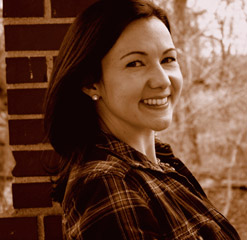 Alison: Hello, Ashley! Thank you for joining us on the blog today. What should our writers expect in working with you at the Whole Novel Workshop?
Alison: Hello, Ashley! Thank you for joining us on the blog today. What should our writers expect in working with you at the Whole Novel Workshop?
Ashley: I’ve been teaching for half my life now, and I’ve learned that I’m most effective when I stay connected to the human realities of a situation. I shape my teaching approach in response to the needs, interests, and possibilities of a particular learner or group of learners. Although I love sharing strategies that have worked for me, I also think the most powerful insights are co-created, not just dished out by the more experienced party.
I work with writers to shape the work at hand and to see a given manuscript as part of their broader exploration of process and craft. As writers, we need to cultivate a sense of curiosity about what the work is and what it might become. Rigidity is, very often, the enemy of real creation.
Alison: Your workshop focuses on historical fiction novels for middle-grade and young adult markets. Can you tell us why you believe historical fiction is needed in today’s marketplace?
Ashley: Historical fiction can help us amend our imagining of the past to include the experiences of minoritized people, which have too often been relegated to the margins of mainstream histories or erased altogether. We all need to engage with these stories.
Also, I think that readers of all ages benefit from the chance to recognize how many of the “givens” in our society can be changed. Historical fiction doesn’t just show us how bad (or good) the past was; it dramatizes different ways of living, doing, relating, learning. Those differences in the past remind us of the possibility of change in the future. When we get that we are, individually and collectively, a work-in-progress, it’s possible to begin talking about how our society needs to grow and change if we are to envision a more just future.
Alison: Yes. Thank you, Ashley. Through historical fiction, like Out of Darkness, you engage young readers in conversation to help our world evolve. You’ve spoken about former students being a compass for your work. Do you count your students among your writing mentors?
Ashley: Absolutely. I found my biggest allies when I was a teacher in Houston; my students always checked up on me and made sure I was getting my pages done.
Since then, I’ve managed to apprentice myself in various ways, most of them informal. But opportunities to be in workshop with Karen Joy Fowler, Julia Glass, and other wonderful writers were especially formative.
Alison: We’d love a glimpse into your writing process, Ashley.
I’m a professor and a mom as well as an author, so I tend to squeeze in the writing whenever and wherever I can. Thirty minutes a day doesn’t sound like much, and it’s not ideal, but it’s enough to keep a project warm until the next longer session.
My writing process looks different for each book, but I tend to go back and forth between notebooks and my computer. Then there comes a point where I print out the whole book, revise by hand, and then retype it completely. That sounds like a crazy amount of extra work, but re-entering everything makes it much easier for me to leave out scenes that don’t really belong in the book.
Alison: It has been a pleasure, Ashley. Thank you for joining us today!
— Interview by Alison Green Myers

